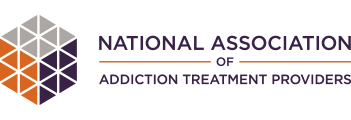As a trauma therapist, I spend a lot of time educating people about how we got ourselves into the pickle of using a specific behavior to solve life problems. All the while now knowing that those behaviors aren’t working for us any more and counting to do them. It might have worked brilliantly to get drunk in college; c’mon, all our friends did it. It’s not working now though. It’s getting in the way of going to work. Eating a cupcake used to boost our mood, now we’re 4 cupcakes in, our tummy hurts and we’re still in a lot of pain. Lying is another one of them. Now most people will say that drinking too much, eating too much and lying are behaviors that never really ‘worked’ for us. And while that may be true, the way they worked at first, was adaptive. It made a lot of sense. On some level, they kept us safe, kept us out of scary feelings and for some people, kept us alive.
For some, lying has become primary coping skill and the lying is particularly prevalent for the person in their significant relationships. This tends to seem counter-intuitive for those who have never used lying as a coping skill. I hear often from partners, loved ones and parents, “Why would you lie to someone you love?”
The answer is never as simple as a basic response but usually it goes like this:
I anticipated that there was a “right” answer to your question
I felt shame when you asked that personal question about me.
I’m not sure it’s safe enough for you to see who I really am.
If I give the wrong answer, you might leave.
I’m bad and I need to cover that up.
These fears tend to drive the behavior and the more the behavior keeps us safe, the more we tend to repeat it. It’s reinforced over and over again by our brain feeling relief by the behavior being soothing and getting us out of a danger response. In my clinical experience, most people that I’ve worked with are aware of a few things. The first awareness they have is that they are lying. The second is that lying doesn’t actually work in the long run. The third is that lying hurts people. The person can hold those in present awareness and still, when push comes to shove and they are under attack, still lie.
Lying can come in many shapes and sizes including lying about simple goofy things and ranging to big sweeping accusations about others in an effort to protect ourselves. From the truth about our favorite color, flavor of popsicle to huge parts of our lives and extending outward to the truth about the character of others. Most of the people with whom I work, after doing some significant trauma work, will say that the lying they did was dumb, that they wish they wouldn’t have done it and that they realize just how harmful it was to those around them.
If you find yourself lying about teeny tiny things up to really huge fundamental truths, you’re not alone and it doesn’t need to be the way you’re living your life. You can find a way to experience enough safety to tell the truth. You can learn how lying was a trauma response. You can learn about trauma and the impact it has on your life. Through healing the trauma, you can have more options about your behavior, including decrease to extinguishing the lying behavior. In doing this work, you also get to learn ways to connect with yourself and with others in ways that are fulfilling so you don’t have to feel so alone. Lying might be your primary defense mechanism now and I get why you might want to use it as such. Let’s get you some more options.
Blog By: Monica O’Connell, MA LMFT
Private Practice Clinician
National EMDR, LBGTQ and EMDR Trainer
Monica is a therapist in private practice specializing with clients who are at the intersections of addiction & maladaptive coping strategies, mental health and trauma. She is an EMDR practitioner and is an EMDRIA consultant in training. Monica’s specialties extend to working within the LGBTQ communities. She is a recovery advocate and often times works with people on their own definition of recovery and its impact on their relationships to self and others. She provides consultation and supervision to people who are seeking LPCC & LMFT post graduate licenses, particularly those specializing in dual license/dual diagnosis areas and to those pursuing further education/training in EMDR. Additionally she provides local and national trainings on addiction, the LGBTQ community and trauma informed care.



